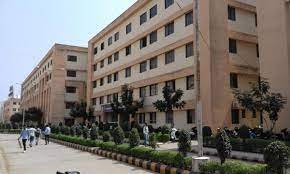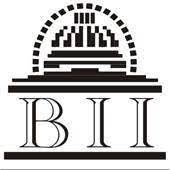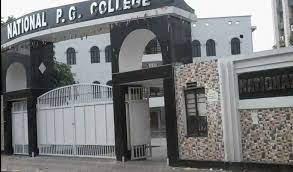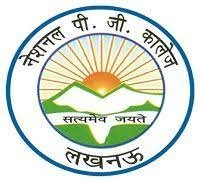Graduates with a Certificate in Forensic Science may find opportunities as forensic science technicians, evidence technicians, crime scene investigators, or laboratory assistants. This program can also be beneficial for individuals already working in law enforcement or related professions
Career & Job Opportunities for Certificate in Forensic Science Course
A Certificate in Forensic Science is a short-term, focused program that provides individuals with essential knowledge and skills in forensic science. This field is dedicated to the application of scientific principles and techniques to investigate and solve crimes. Graduates of certificate programs in forensic science are equipped with the foundational understanding and practical abilities required for various career paths within the field. In this article, we will explore the diverse career opportunities and job prospects available to those who earn a Certificate in Forensic Science.
Certificate in Forensic Science Career Opportunities
A Certificate in Forensic Science unlocks various career opportunities. Graduates can work as crime scene technicians, forensic laboratory assistants, or evidence analysts in law enforcement agencies, crime labs, or private forensic companies. Opportunities also exist in digital forensics, where professionals investigate cybercrimes. With this certificate, individuals can embark on fulfilling careers in criminal investigation, justice, and cybersecurity, ensuring diverse and impactful roles in the field of forensic science.
-
Forensic Science Technician: Forensic science technicians, also known as crime scene investigators (CSIs), are responsible for collecting and analyzing physical evidence from crime scenes. They document and photograph evidence, collect samples such as fingerprints, blood, and hair, and ensure proper chain of custody. Technicians may specialize in areas such as DNA analysis, ballistics, or trace evidence analysis.
-
Forensic Laboratory Technician: These technicians work in forensic laboratories, where they analyze and process evidence collected from crime scenes. They use a variety of scientific techniques and equipment to examine evidence, such as firearms, drugs, and biological samples. Forensic laboratory technicians are essential for processing evidence efficiently and accurately.
-
Fingerprint Examiner: Fingerprint examiners analyze fingerprints found at crime scenes to identify suspects. They use specialized techniques to compare latent prints (those left at a crime scene) to known prints on record. This role is crucial in criminal investigations and court proceedings.
-
Forensic Photographer: Forensic photographers document crime scenes by capturing detailed and accurate photographs. These images serve as visual records of the scene and can be used as evidence in court. Forensic photographers must have a keen eye for detail and excellent technical photography skills.
-
Digital Forensics Examiner: Digital forensics examiners specialize in recovering and analyzing digital evidence from computers, smartphones, and other electronic devices. They uncover digital footprints, investigate cybercrimes, and provide critical evidence in cases involving cyberattacks, fraud, and data breaches.
-
Forensic Pathology Assistant: Forensic pathology assistants work alongside forensic pathologists in performing autopsies and examining bodies to determine the cause of death. They assist with post-mortem examinations, collect samples, and document findings.
-
Forensic Accountant: Forensic accountants investigate financial crimes, such as fraud, embezzlement, and money laundering. They analyze financial records, transactions, and documentation to uncover irregularities and provide evidence for legal proceedings.
-
Crime Analyst: Crime analysts use data and statistics to assist law enforcement agencies in identifying patterns, trends, and potential suspects in criminal investigations. They play a critical role in proactive crime prevention and resource allocation.
-
Forensic Odontologist: Forensic odontologists specialize in dental identification, particularly in cases involving unidentified human remains. They analyze dental records and dental characteristics to establish the identity of individuals.
-
Forensic Toxicologist: Forensic toxicologists analyze biological samples (e.g., blood, urine) for the presence of drugs, alcohol, and toxins. They provide expert testimony in cases involving substance-related crimes, such as driving under the influence and poisoning.
Certificate in Forensic Science Job Opportunities
Job opportunities for Certificate in Forensic Science holders encompass positions such as crime scene investigators, forensic lab technicians, and evidence analysts in law enforcement agencies, forensic labs, and private investigation firms. Additionally, they can find roles in digital forensics, focusing on cybercrime investigation and prevention. This certificate equips individuals with hands-on skills to excel in various forensic science-related job positions, ensuring a wide range of rewarding career prospects.
-
Forensic Science Technician: Forensic science technicians are employed by law enforcement agencies, crime laboratories, and government agencies. They work on crime scenes, in laboratories, and sometimes in morgues, assisting in evidence collection and analysis.
-
Forensic Laboratory Technician: Forensic laboratory technicians work primarily in forensic laboratories and crime laboratories. They are responsible for the analysis and processing of physical evidence submitted by law enforcement agencies.
-
Fingerprint Examiner: Fingerprint examiners are typically employed by law enforcement agencies and forensic laboratories. They work to match latent prints found at crime scenes with known prints in databases.
-
Forensic Photographer: Forensic photographers are employed by law enforcement agencies, crime scene units, and forensic consulting firms. They document crime scenes and evidence through photography.
-
Digital Forensics Examiner: Digital forensics examiners work in law enforcement agencies, private investigative firms, cybersecurity firms, and government agencies. They investigate cybercrimes and digital evidence related to criminal cases.
-
Forensic Pathology Assistant: Forensic pathology assistants work in medical examiner's offices, forensic pathology laboratories, and hospitals. They assist forensic pathologists in conducting autopsies and examinations.
-
Forensic Accountant: Forensic accountants are employed by accounting firms, law enforcement agencies, government agencies, and corporations. They investigate financial irregularities and provide expert testimony in legal proceedings.
-
Crime Analyst: Crime analysts work for law enforcement agencies, government agencies, and private security firms. They analyze crime data and statistics to support law enforcement efforts and crime prevention strategies.
-
Forensic Odontologist: Forensic odontologists often work as consultants and collaborate with medical examiner's offices, law enforcement agencies, and disaster response teams. They use dental records to identify individuals.
-
Forensic Toxicologist: Forensic toxicologists are employed by forensic laboratories, medical examiner's offices, and private toxicology consulting firms. They analyze biological samples to detect drugs, alcohol, and toxins in forensic cases.
 1 Years
1 Years
 Certificate
Certificate
 Science
Science
 Full Time
Full Time





 back
back